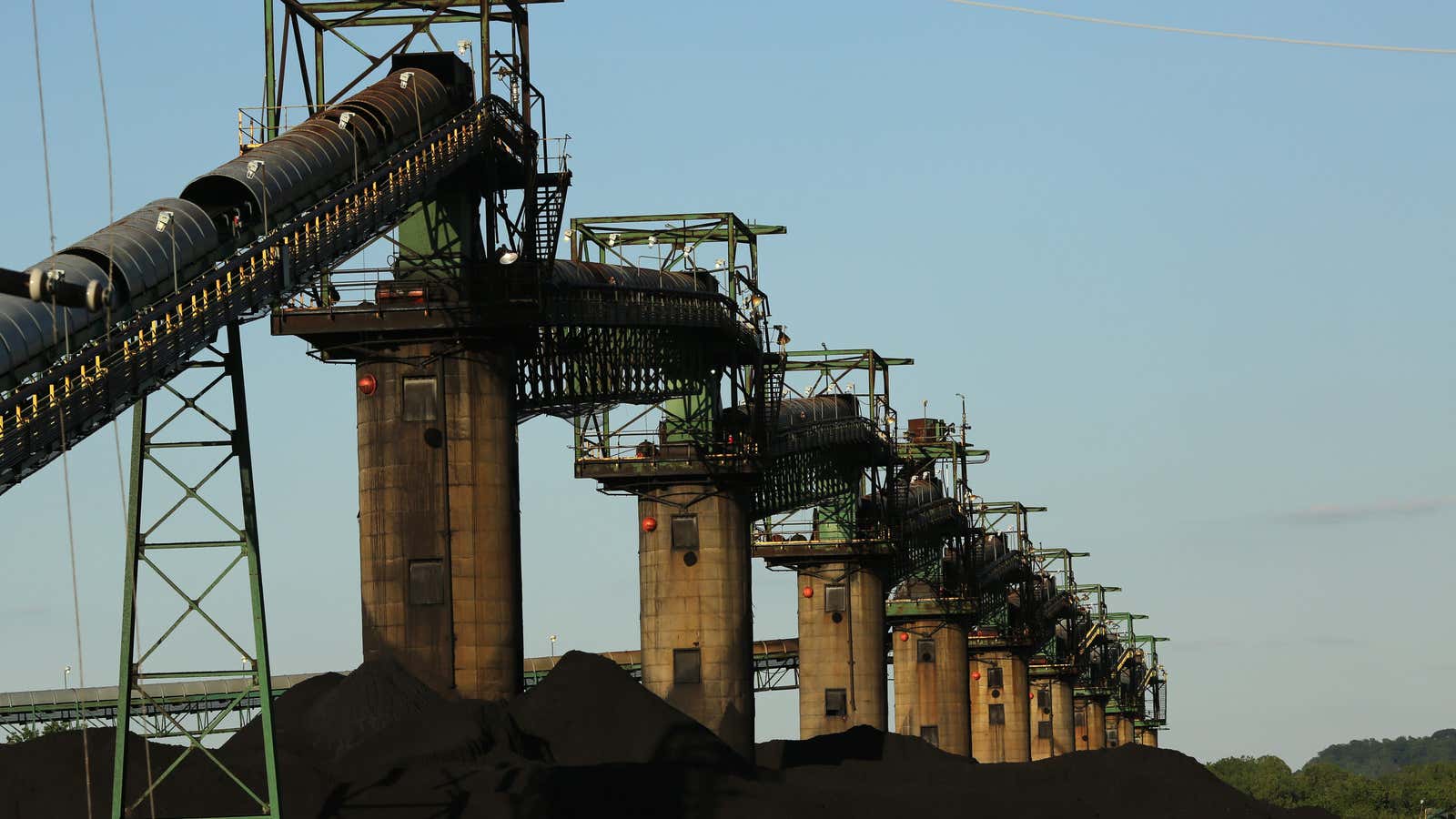One of the last acts of the Obama administration was issuing the Stream Protection Rule. One of the first acts of the new Congress could be overturning it.
The House of Representatives is invoking a seldom used law—the Congressional Review Act—to roll back the rule, which protects waterways from coal dust and other mining residue. Other new rules targeted by Congress today (Feb. 1) include one requiring energy companies to disclose payments to foreign countries and another that stiffens protections for nursing home patients.
The Congressional Review Act serves as an express lane for Congress to kill rules it doesn’t like. It’s the creation of Newt Gingrich, the former House speaker, who got it implemented in 1996 as part of his Contract with America. It has only been used successfully once before, because the circumstances rarely line up where both Congress and the president want to repeal previous administration rules.
The act allows senators and representatives to enter a resolution, rather than a bill, to eliminate rules. Resolutions are treated differently from bills; they can’t be filibustered and need only a simple majority to pass. The tactic can only be used against rules issued in the last 60 legislative days, but that applied to as many as 50 major rules, covering areas ranging from finance to bird hunting, that were passed under the previous administration, according to the Congressional Research Service.
The Stream Protection Rule clarified the regulations of a 1977 mining law to add teeth to its enforcement provisions. It came about after residents of a West Virginia mining town were powerless to prevent coal dust from infiltrating their homes, according to a Planet Money podcast that discussed the history of the rule.
Writing the rule took a decade, as environmentalists battled with the mining industry over the language. The final regulation is thousands of pages long. The rule went into effect Jan. 19, the last day of the Obama administration, and it may not last a month on the books.
